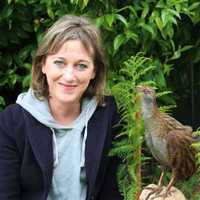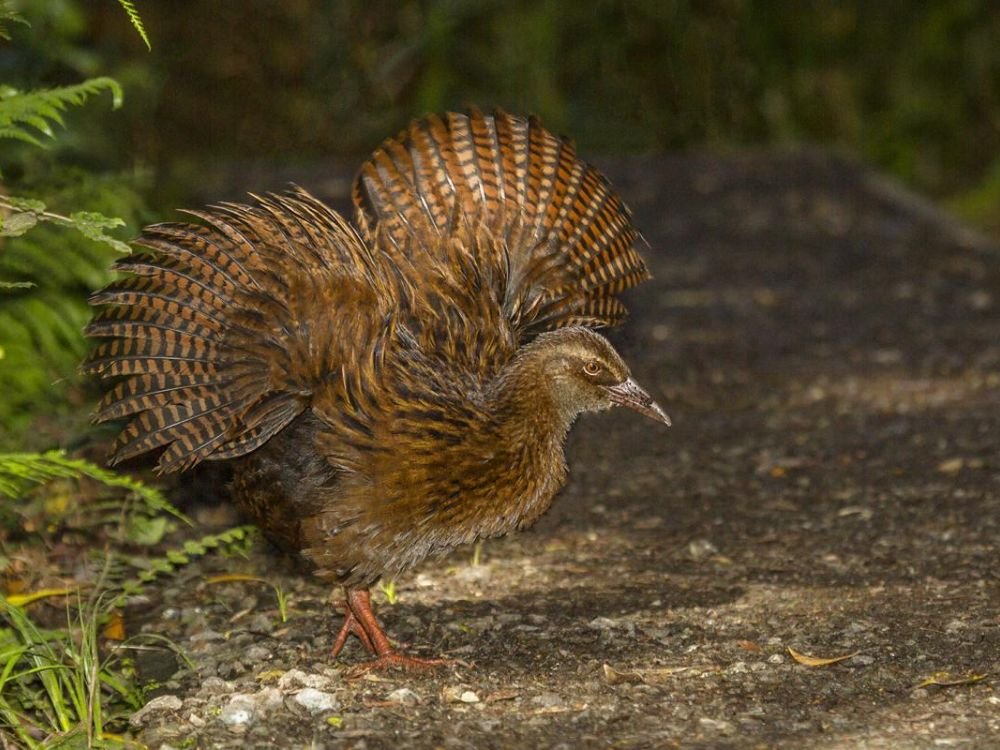- Conservation status
- In some trouble
These cheeky birds need little introduction. But did you know that these colourful characters poop out their body weight in a day? It probably helps that they’re omnivorous, with about 30% of their diet made up of invertebrates and other animals, and the remainder of fruit (and whatever they found in your tramping pack).
Excelling at eating and pooping sure has its plus sides; weka are excellent at dispersing the seeds of native plants in the forest margins. They’re particularly helpful for plants like hīnau, whose fallen fruit is eaten by these sharp-billed mavericks.
Campaign Manager
Fiona Powell

I once shared an island with 102 weka, and I’ve been campaigning for them ever since. These bold, flightless birds may be known for their thieving tendencies, but they also play a crucial ecological role: pest control, seed dispersal and natural tourism ambassadors.
Weka face real challenges. They're misunderstood, misrepresented and missing from many conservation conversations. Meanwhile, flashier flightless birds hog the headlines (looking at you kākāpō). Let’s change the story. Vote weka – the bird that works hard, plays hard and deserves your number one spot. #VoteWeka
- Share your vote
